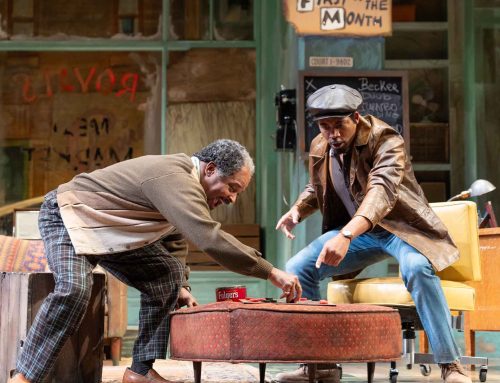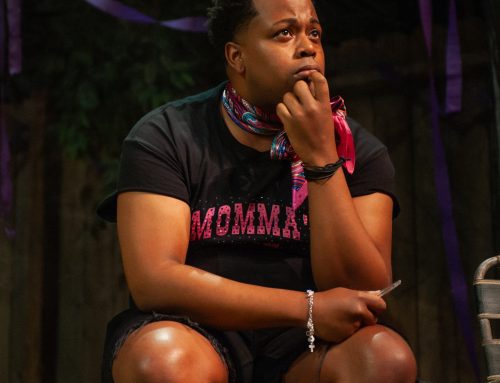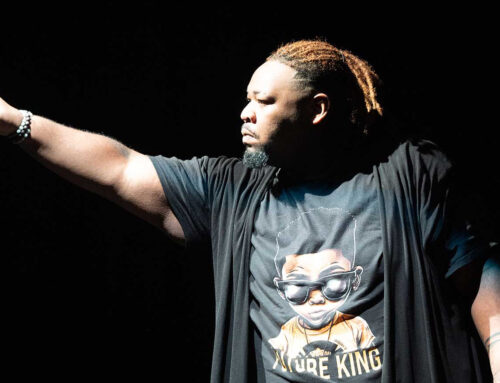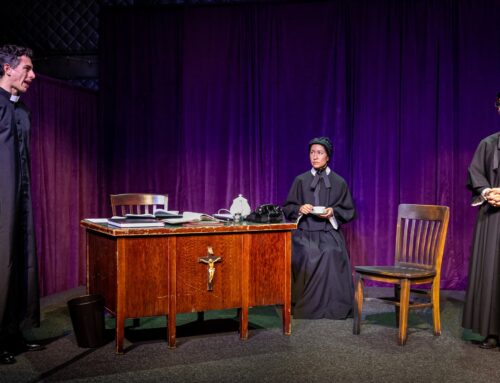Real life is too full of happiness and fun for me to want to see most comedies and other frivolous stuff on stage. Anne Frank is a perfect topic for a theater production: the horror is tightly wound and is inescapable, and it looms from the opening moments.
The dread in Anne’s saga lends itself to melodrama, and the play version of the diary dips into the genre fulsomely. The grinding of events and the knowledge of the bad end coming control the two-hours-plus production.
Unfortunately, the superb cast can only add nibbles of personality and flesh to the eight people showing us this history of the holocaust. The players are given predictable and nearly archetypal roles to fulfill. Whether it’s Anne’s physical and emotional maturing, the close-quarters-fueled tantrums, or the many other negative emotions displayed for us, from an audience seat there’s an unsatisfying feeling that a list of known horrors is being checked so that none are inadvertently missed.
Less writing would have been more powerful.
But, given the enshrinement of the script, this is a hugely wonderful production. Each of the actors finds moments to give their character more personality than the cardboard one written.
Catherine Coulson won my respect with her body language and facial expressions with which she showed more sides to the haughty Mrs. van Daan. Meanwhile, Linda Alper’s as Anne’s mother was a nervous gem. (My favorite ironic note of this production is that Mrs. Frank’s greatest dream is to have her own pot of real coffee when the war is over — last year Alper played a WW-II black marketeer who was awash in coffee that she sold.) Both fathers played by Tony DeBruneo (Frank) and Michael Hume (van Daan) collaborated with director James Edmonson and mostly tried to underplay their stereotypical parts. It was a nice try.
Larua Morache in the title role lurched from one revelatory emotion to the next with conviction. Her sister Margot, played by Sarah Rutan, was allowed to quiet most of the play. Rutan pulled that off, and shone in her brief moments of dialogue. Michael Elich’s Mr. Dussel was fun to watch, even if I never quite figured out that kind of person Dussel was. The final refugee, the van Daan’s 16-year-old son Pieter, was played with good control by John Tufts. He was allowed to be handsome opposite Anne’s awkward plainness which didn’t mesh, but can I really complain about eye candy?
In the end, the true power of the story of Anne Frank and the skill of the cast were obscured by the writers and the adapter. The decision to produce The Diary of Anne Frank was just wrong. There are better vehicles that touch the same subject, and there are better uses of acting talents.
![]() (rating updated after further reflection on May 29, 2006)
(rating updated after further reflection on May 29, 2006)






Leave A Comment